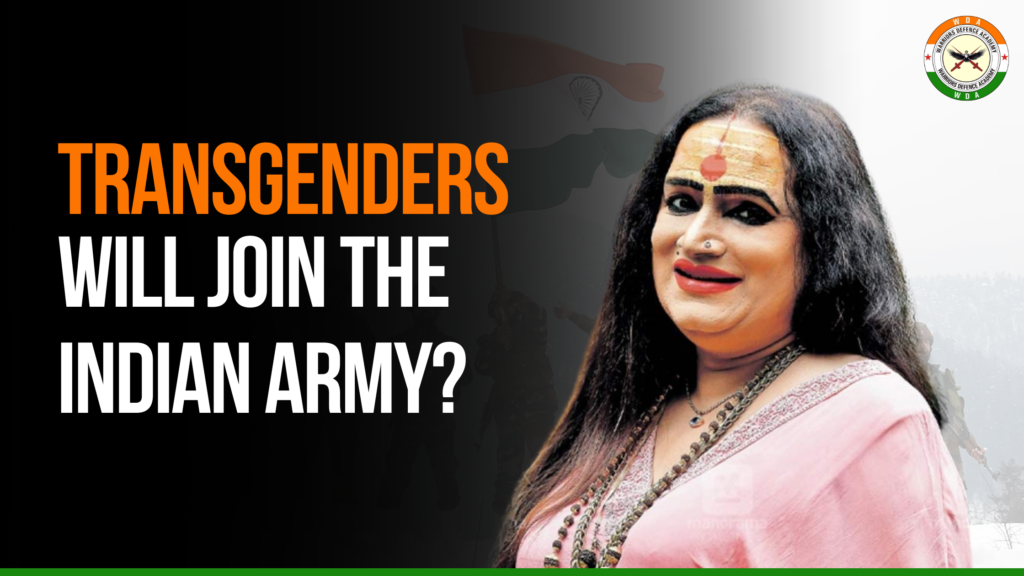The Indian Armed Forces are actively investigating the prospect of integrating transgender individuals into their ranks, aligning with the Transgender Persons (Protection of Rights) Act established in 2019. To delve into the implications of this Act and devise effective implementation strategies, the Principal Personnel Officers Committee (PPOC) has convened a joint study group. Comprising senior officers from various services, including the Armed Forces Medical Services, this committee aims to comprehensively understand the ramifications of such a significant policy shift.
The Army’s Adjutant General’s branch is soliciting insights on the viability of recruiting transgender personnel, delineating their potential roles and career trajectories within the force. While these discussions are at an early stage, several directorates have already submitted their assessments. Diverse perspectives abound, with some advocating for transgender recruits to undergo the same training and selection procedures as other personnel. Conversely, logistical obstacles such as housing arrangements and seamless integration into the military culture have been highlighted as potential challenges.
Authorities stress that any potential recruitment of transgender individuals will adhere strictly to the principles of selection and merit, mirroring existing practices within the Armed Forces. Pertinent administrative hurdles, notably concerning housing arrangements and access to appropriate facilities, particularly in field locations, are also under consideration. Moreover, there’s a concern that confining transgender postings solely to peaceful stations might curtail opportunities for this demographic.
In a noteworthy development, a report submitted to the Rajya Sabha by the Standing Committee on Personnel, Public Grievances, Law, and Justice in August recommended the Ministry of Home Affairs to deliberate on reservation benefits for transgender individuals in the Central Armed Police Forces. It’s worth noting that currently, there are no transgender employees within the Armed Forces.
Amid these discussions, concerns have arisen regarding the acknowledgment of the spouses of transgender personnel and their seamless cultural assimilation within the Armed Forces. The Transgender Persons (Protection of Rights) Act of 2019 aims to safeguard the rights of transgender individuals and prevent discrimination across various sectors, including employment. It’s crucial to note that, until now, the Armed Forces have not accepted transgender or homosexual individuals.
The ongoing emphasis remains on conducting any potential recruitment of transgender individuals based solely on merit and selection, mirroring established practices. Alongside this, the Armed Forces are evaluating administrative complexities, particularly pertaining to accommodation and facilities, with a focus on field locations. Furthermore, there’s a contemplation on the potential limitations that might arise if transgender postings are primarily confined to tranquil stations.
The recommendation in August from the Standing Committee on Personnel, Public Grievances, Law, and Justice to consider reservation benefits for transgender individuals in the Central Armed Police Forces, despite the absence of transgender employees in the Armed Forces, underscores the evolving discourse on inclusivity and equality within India’s defense forces.
